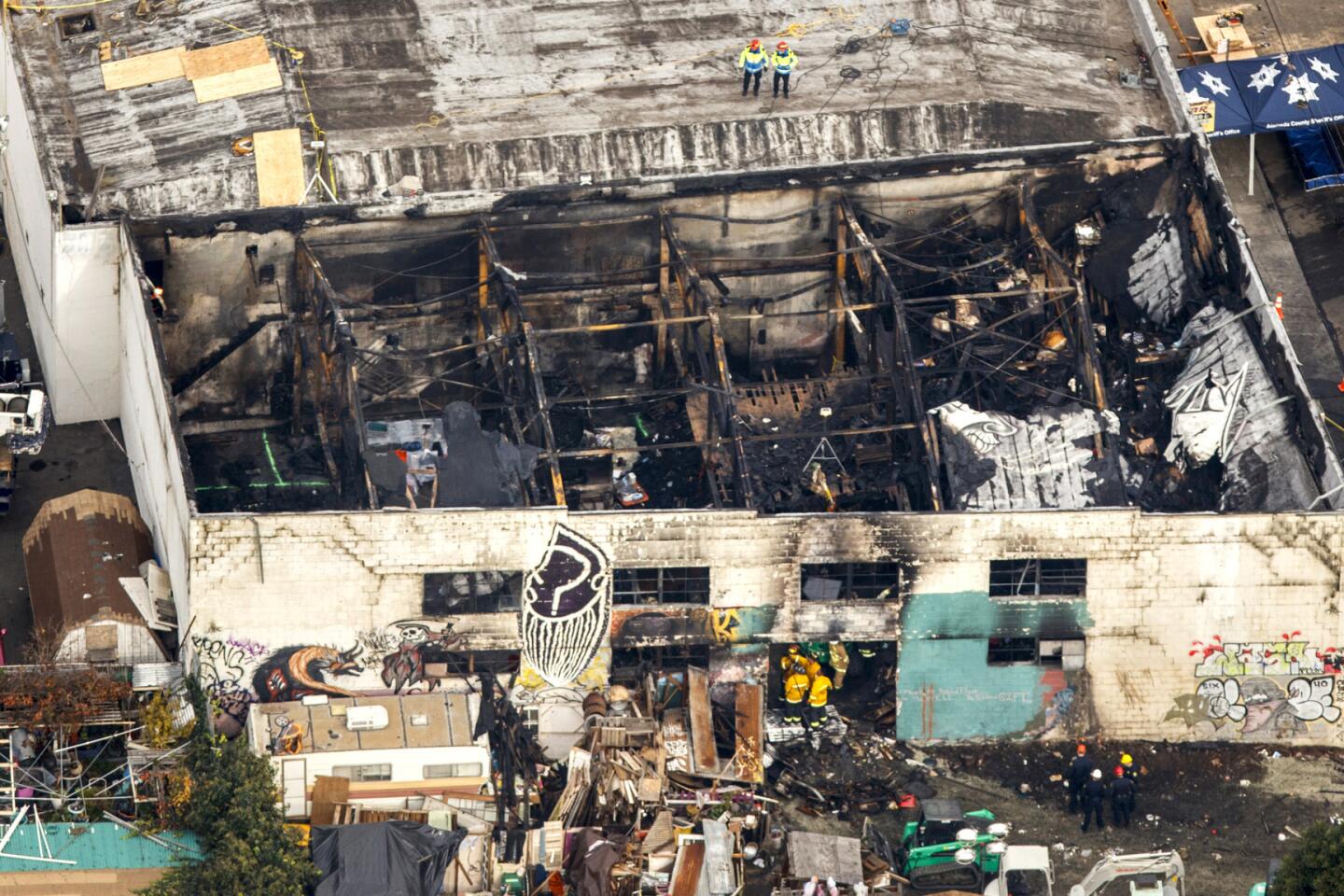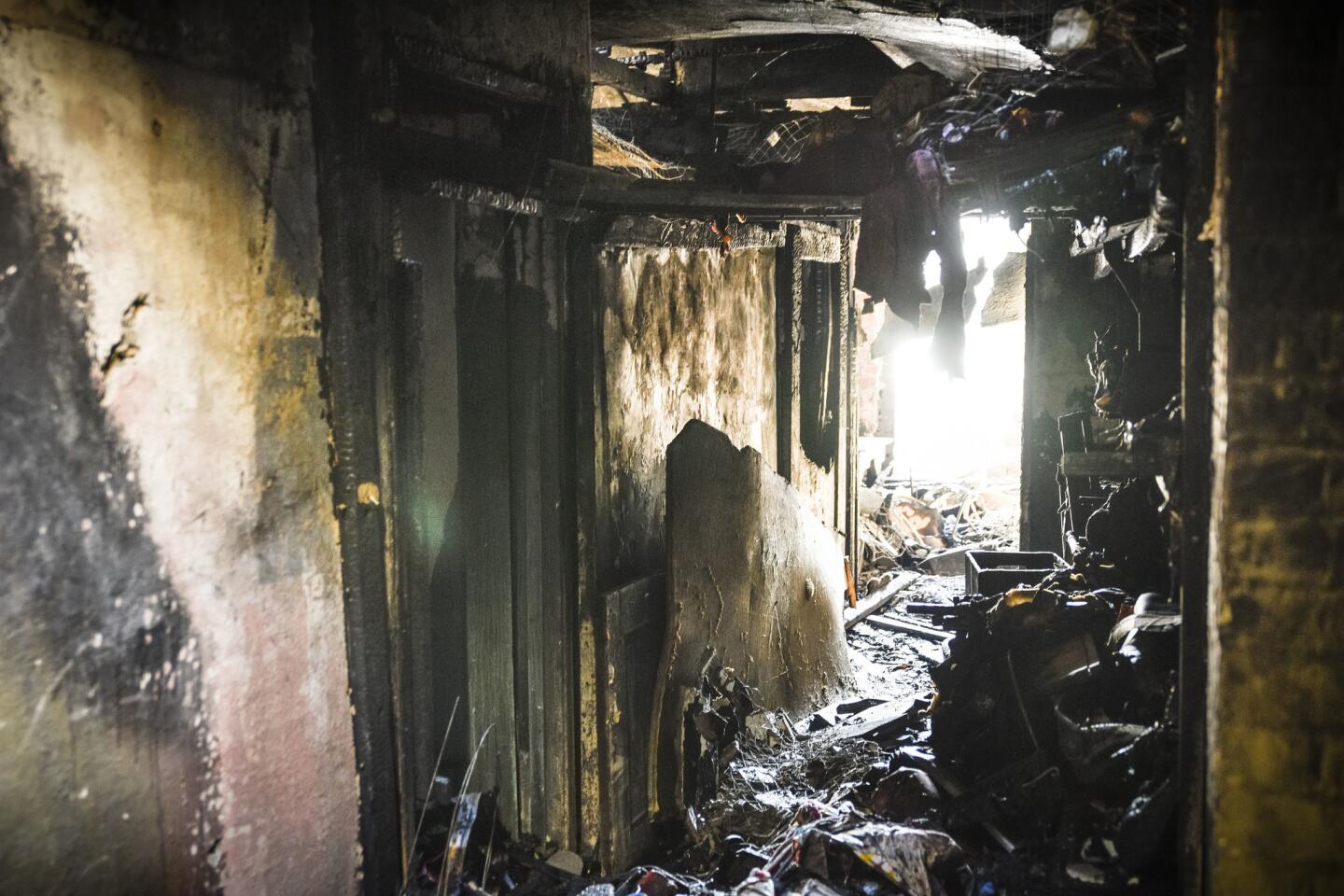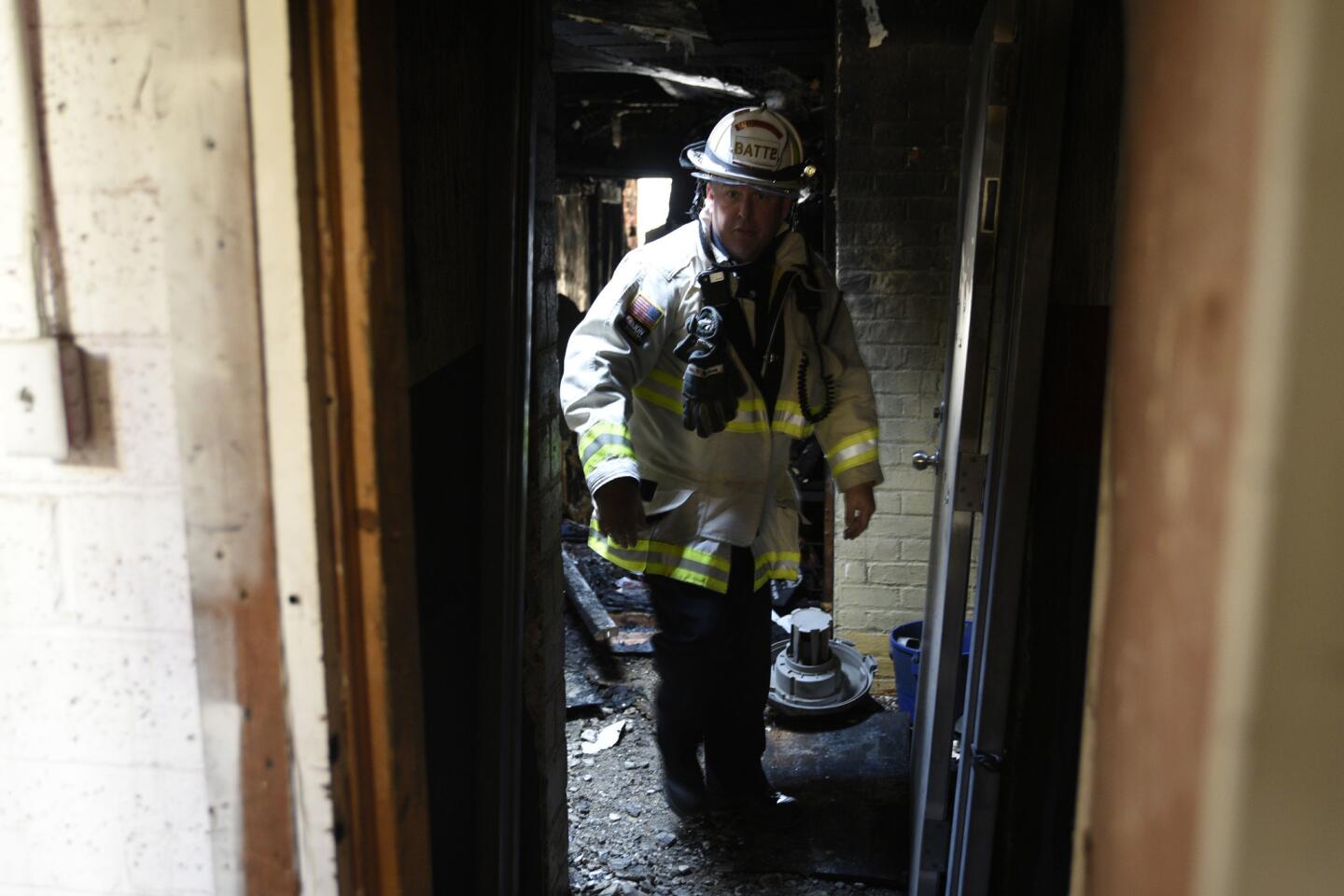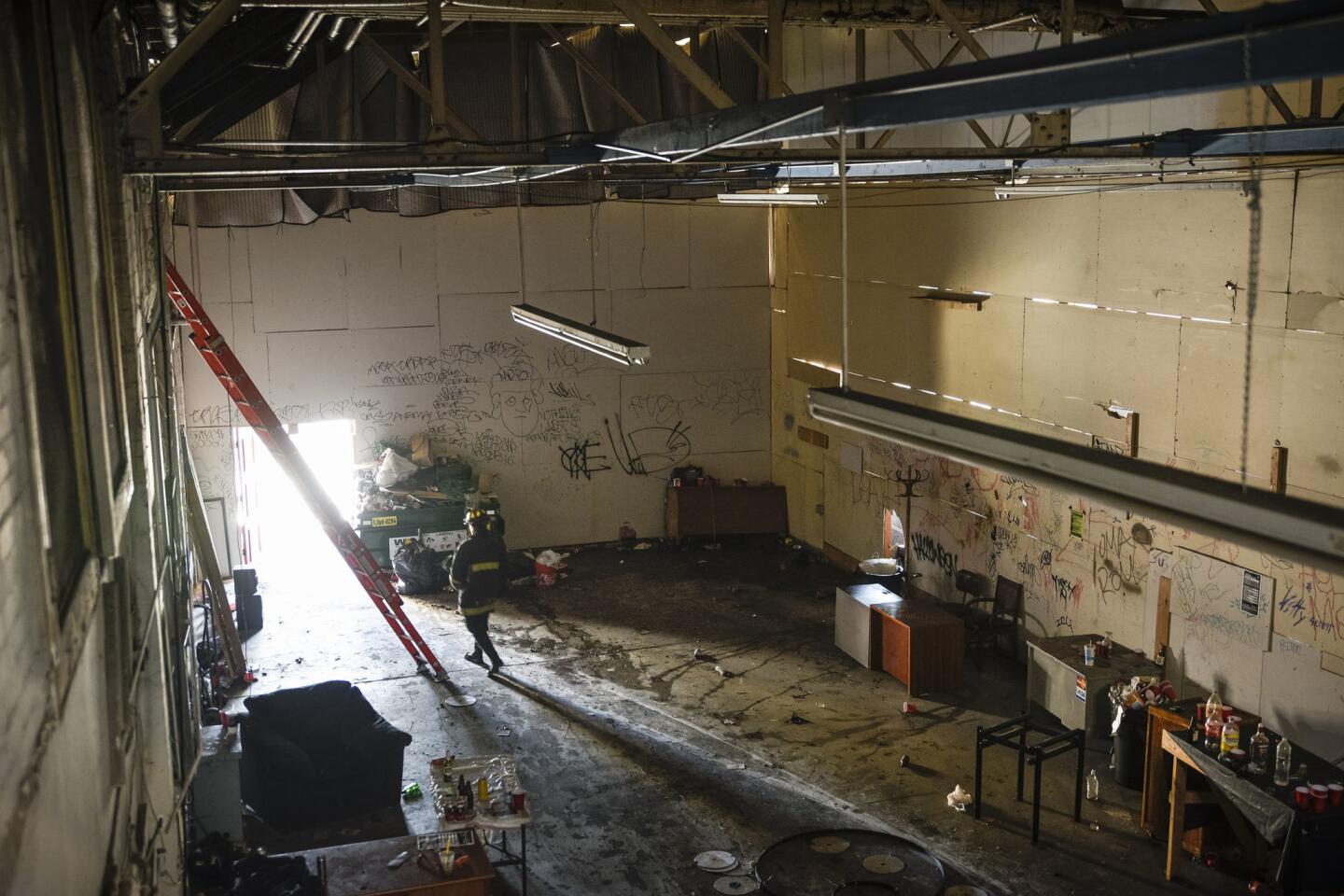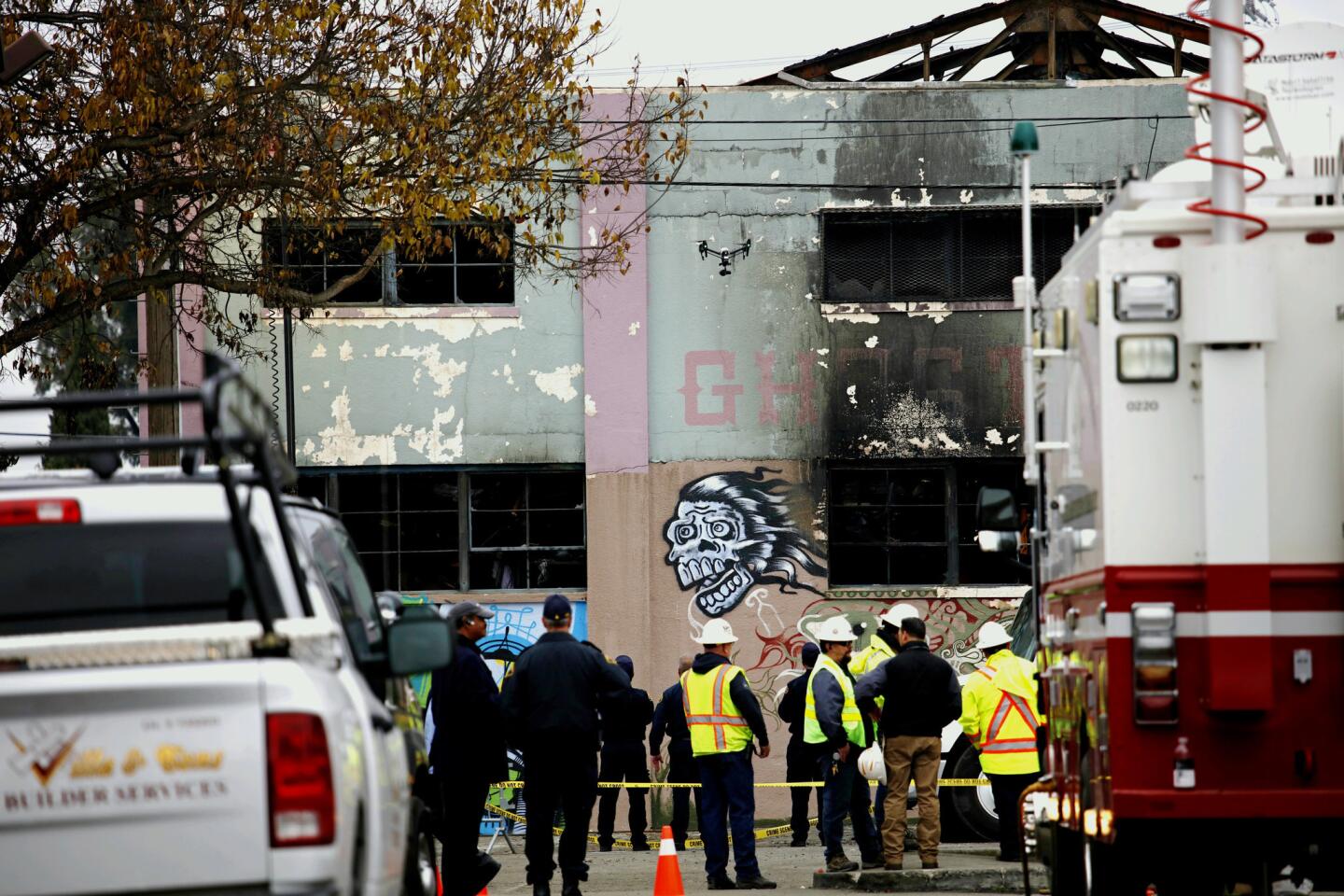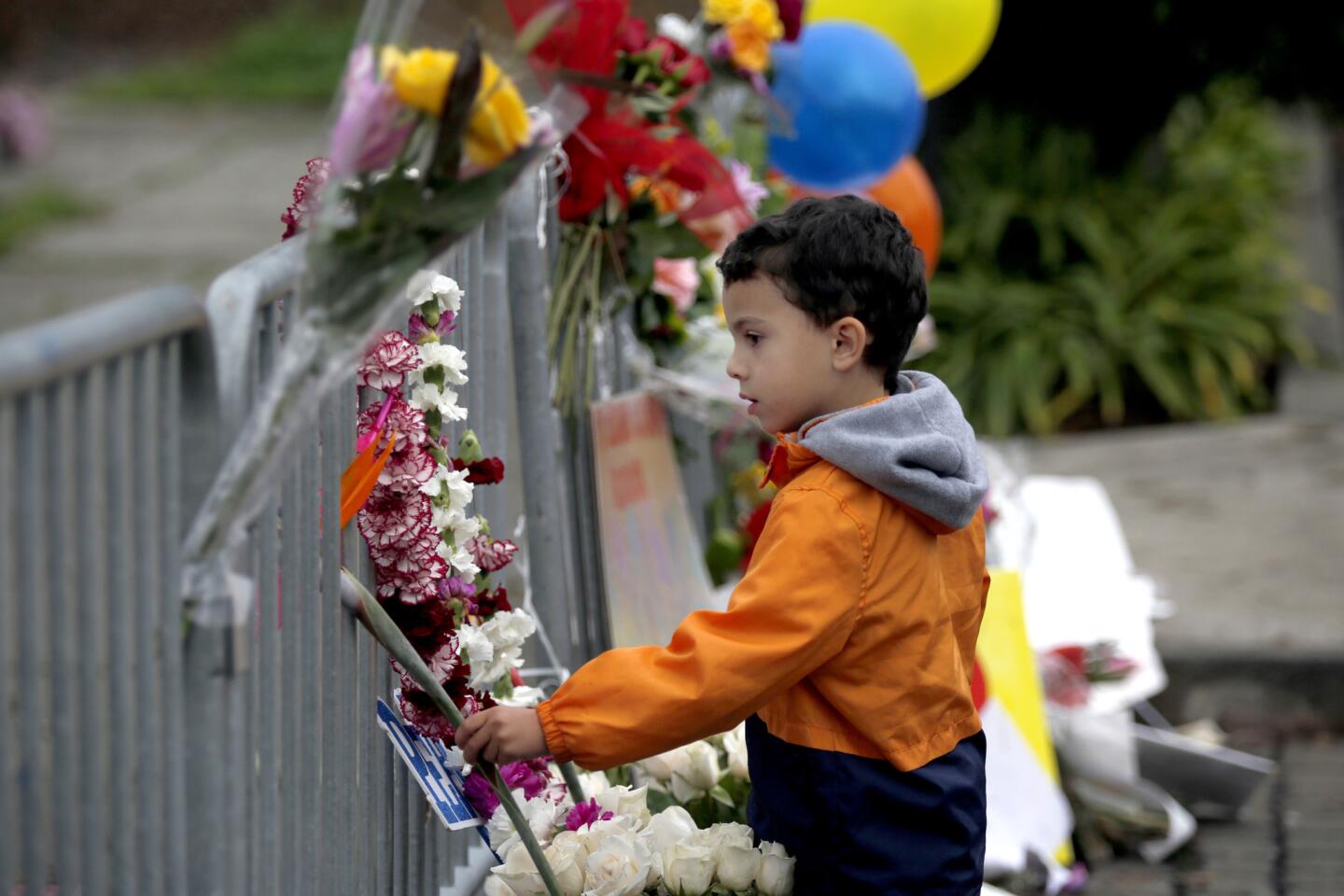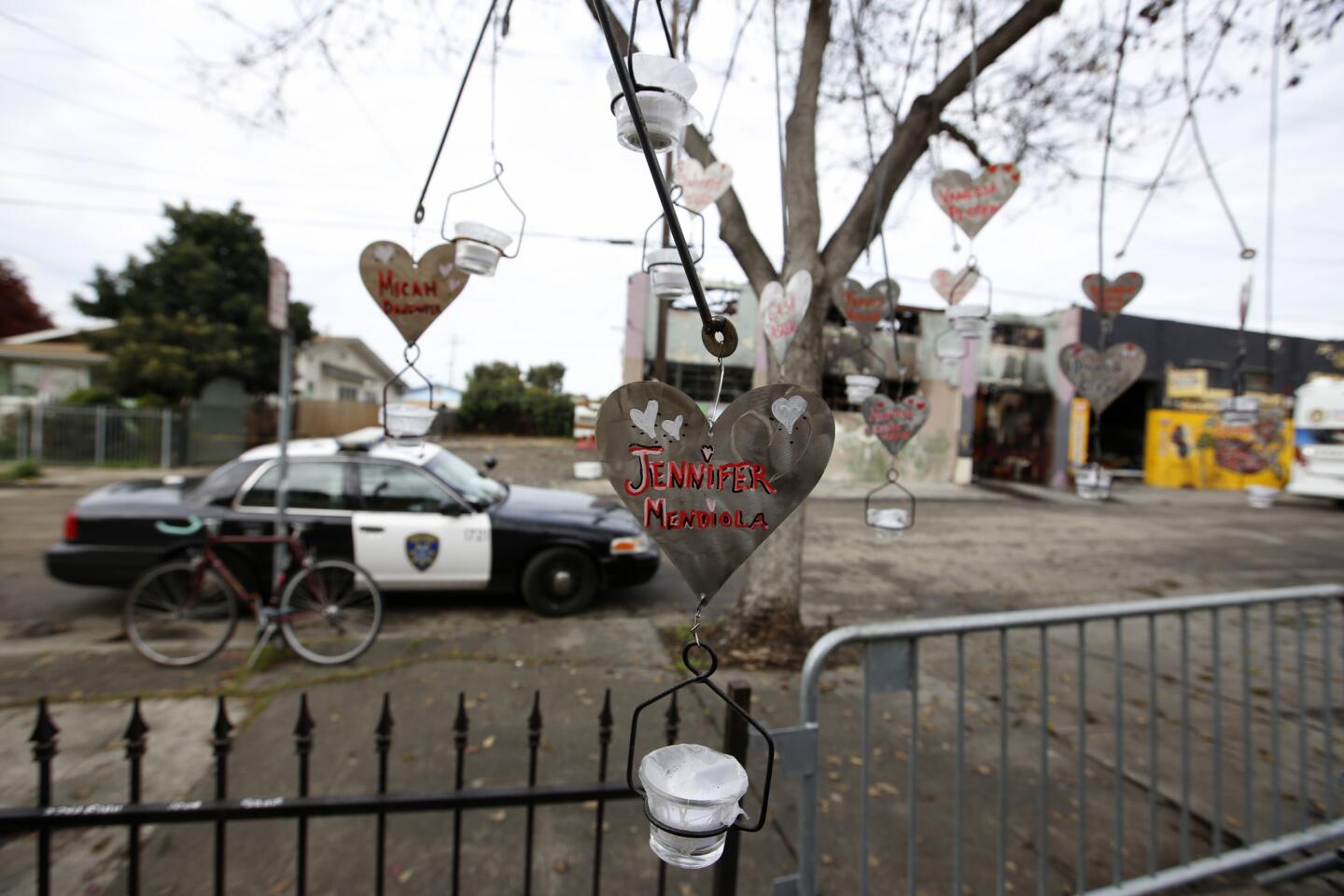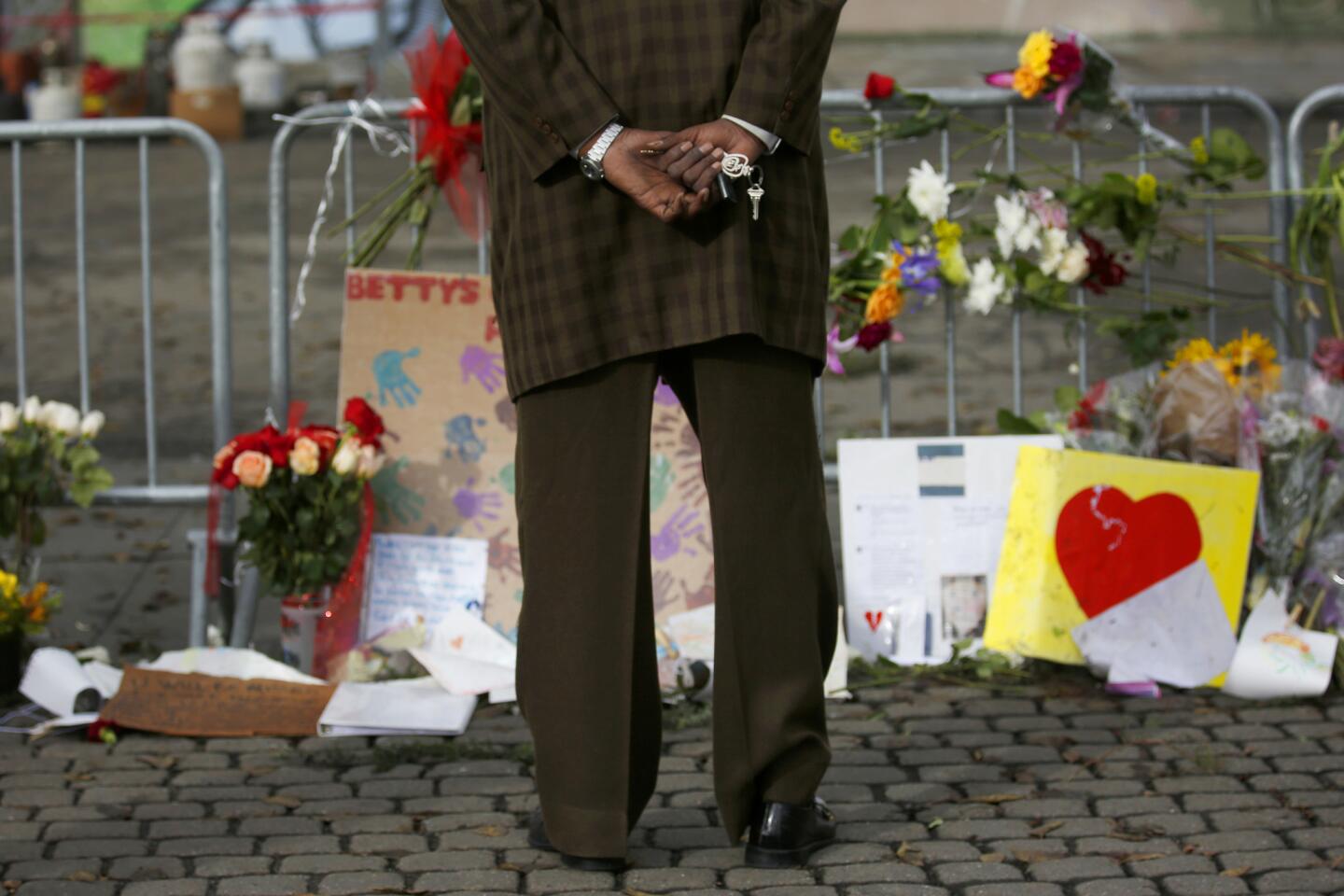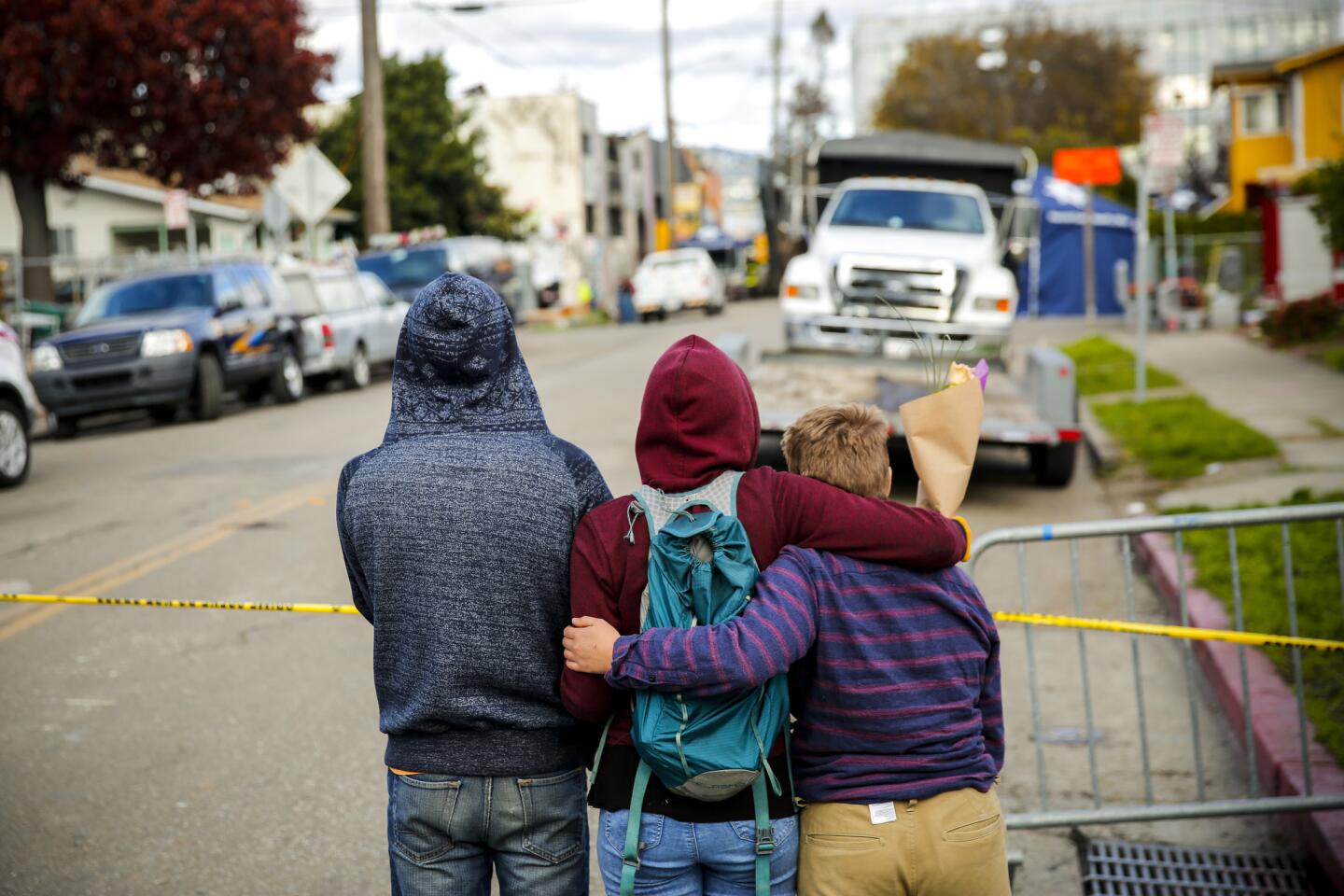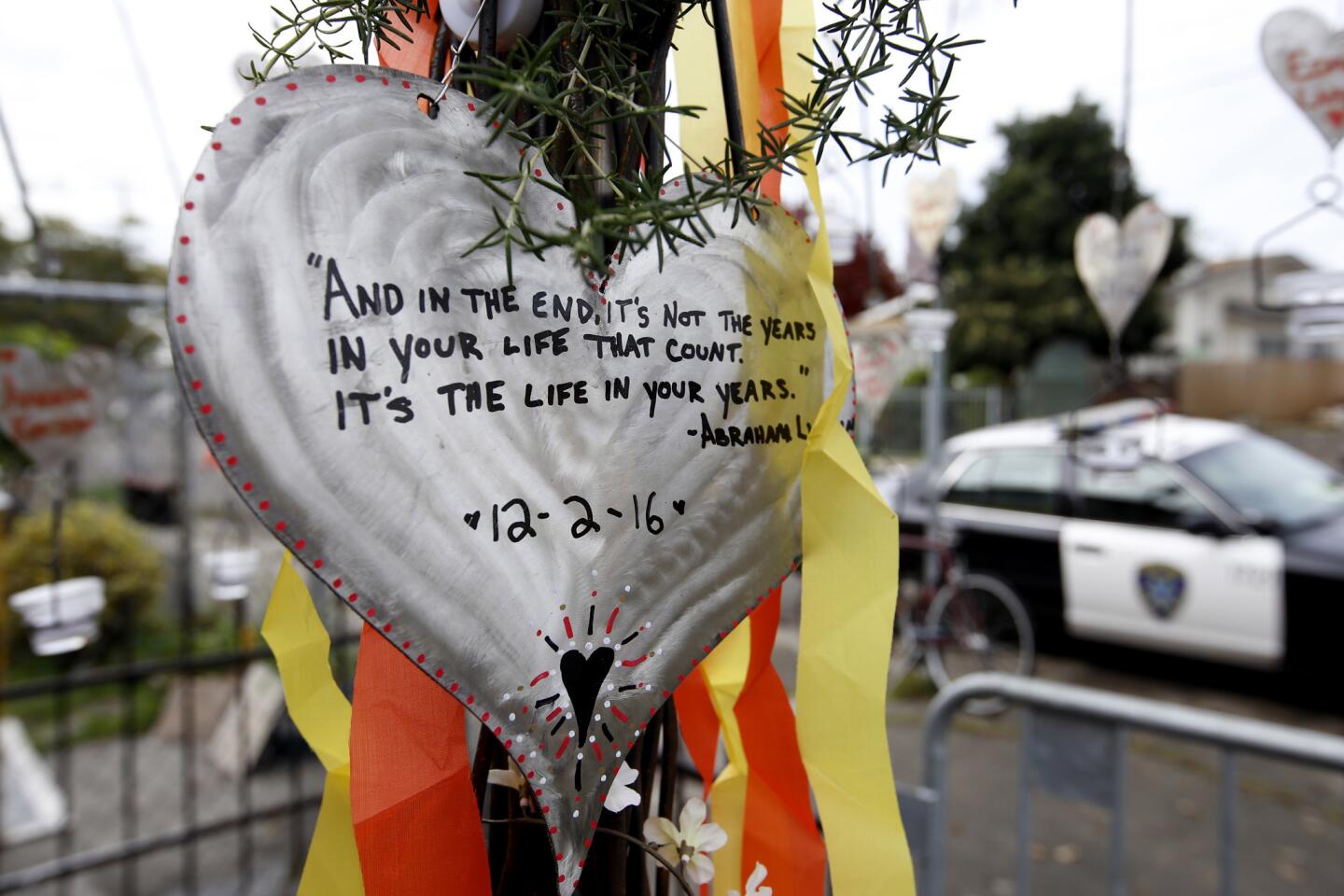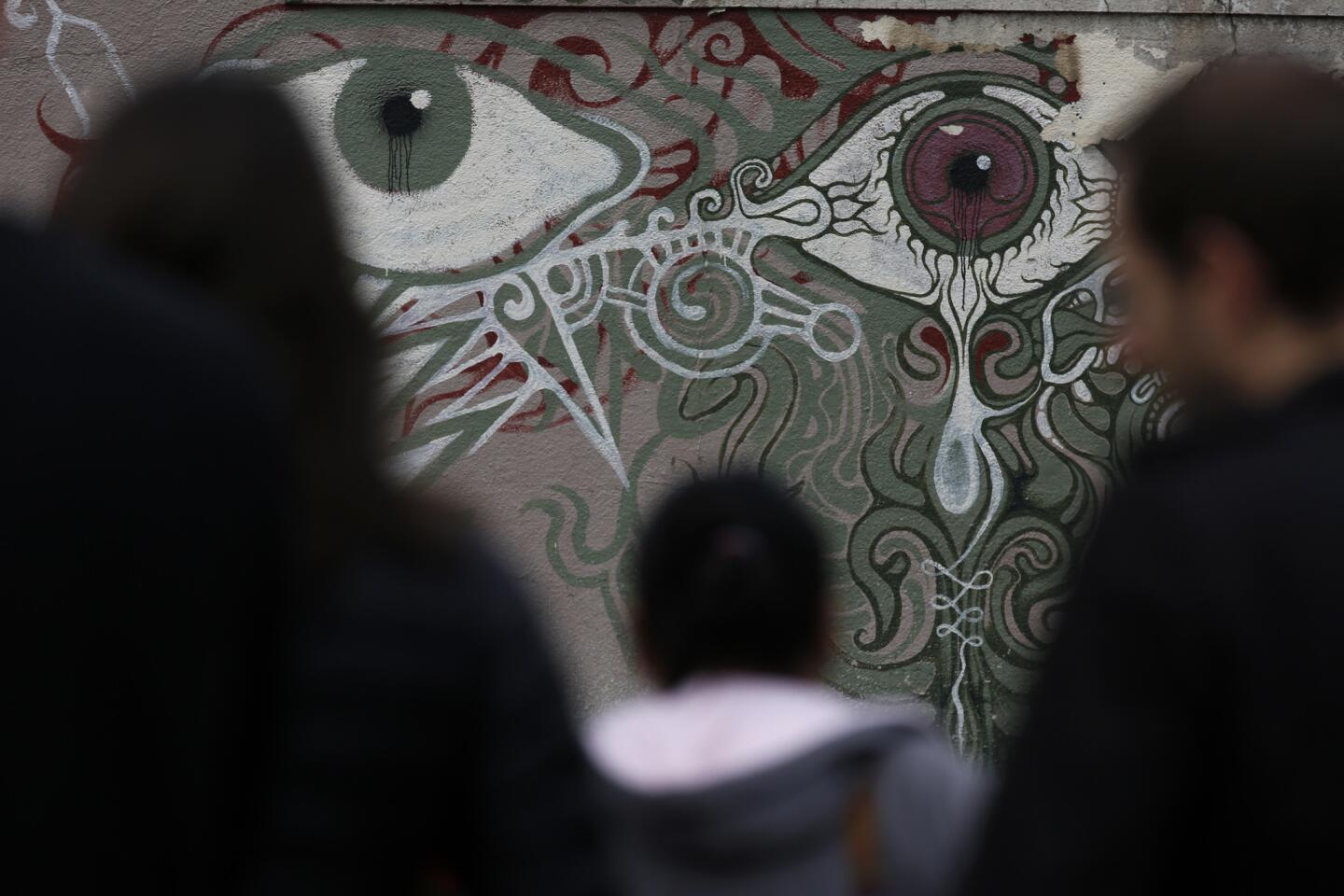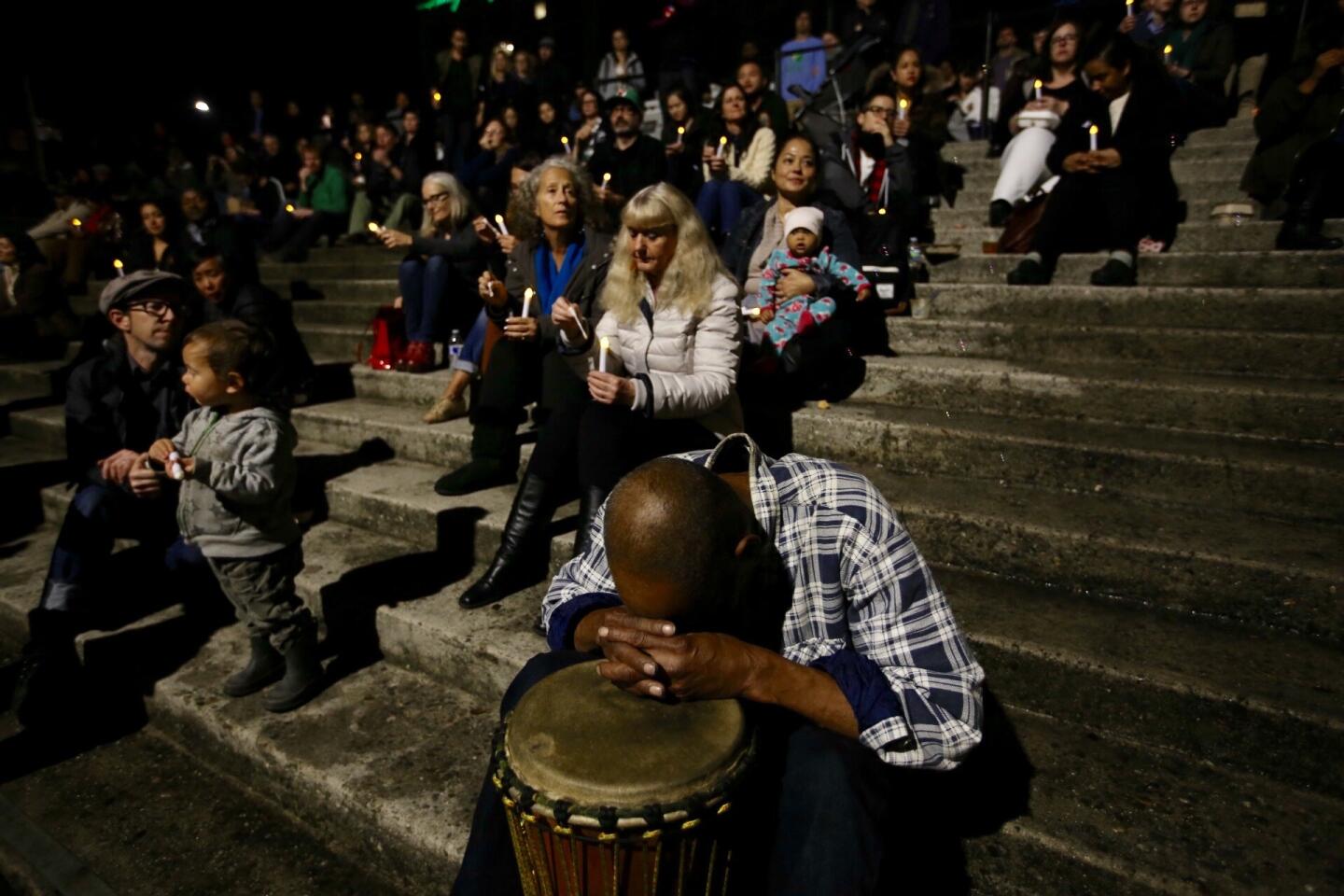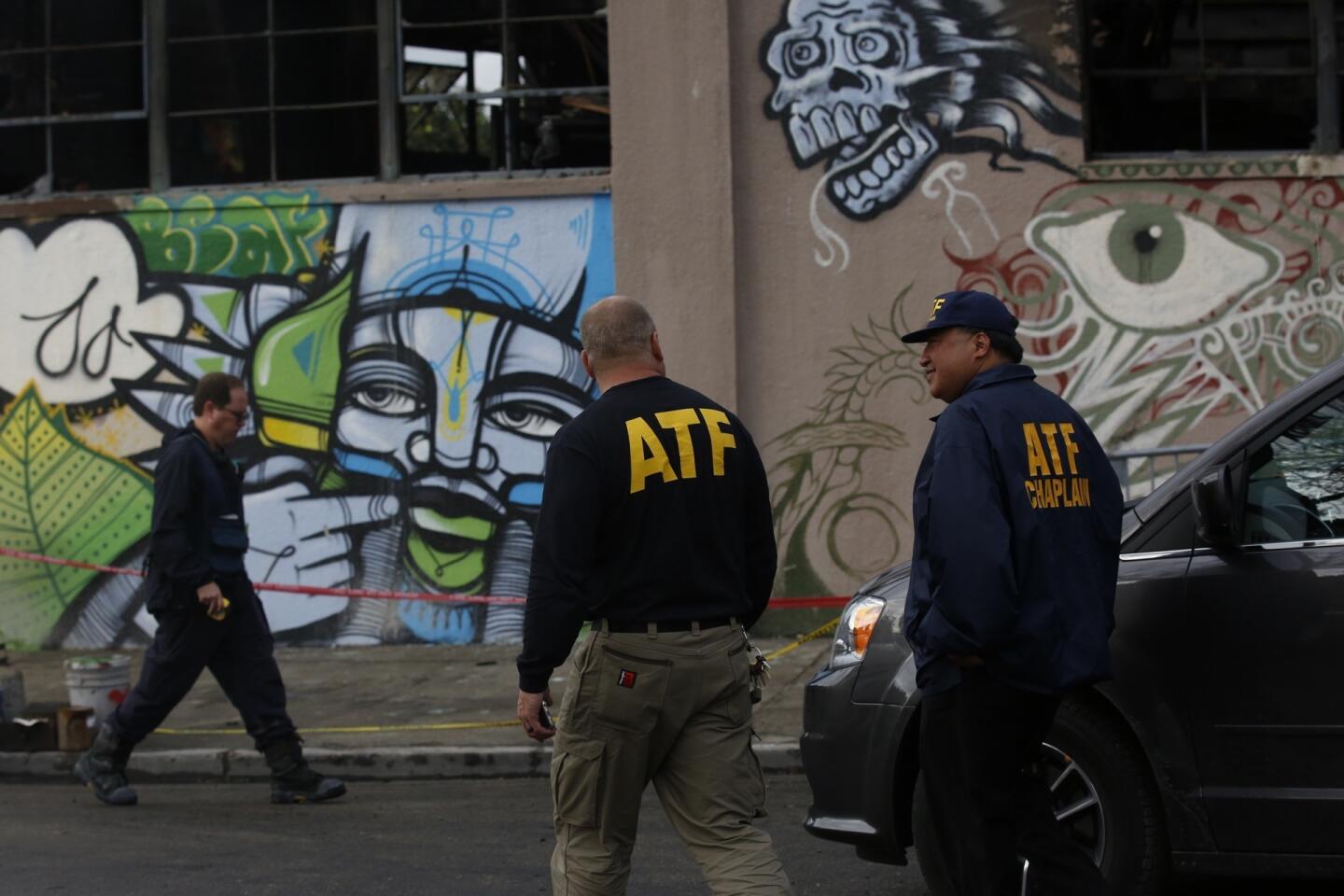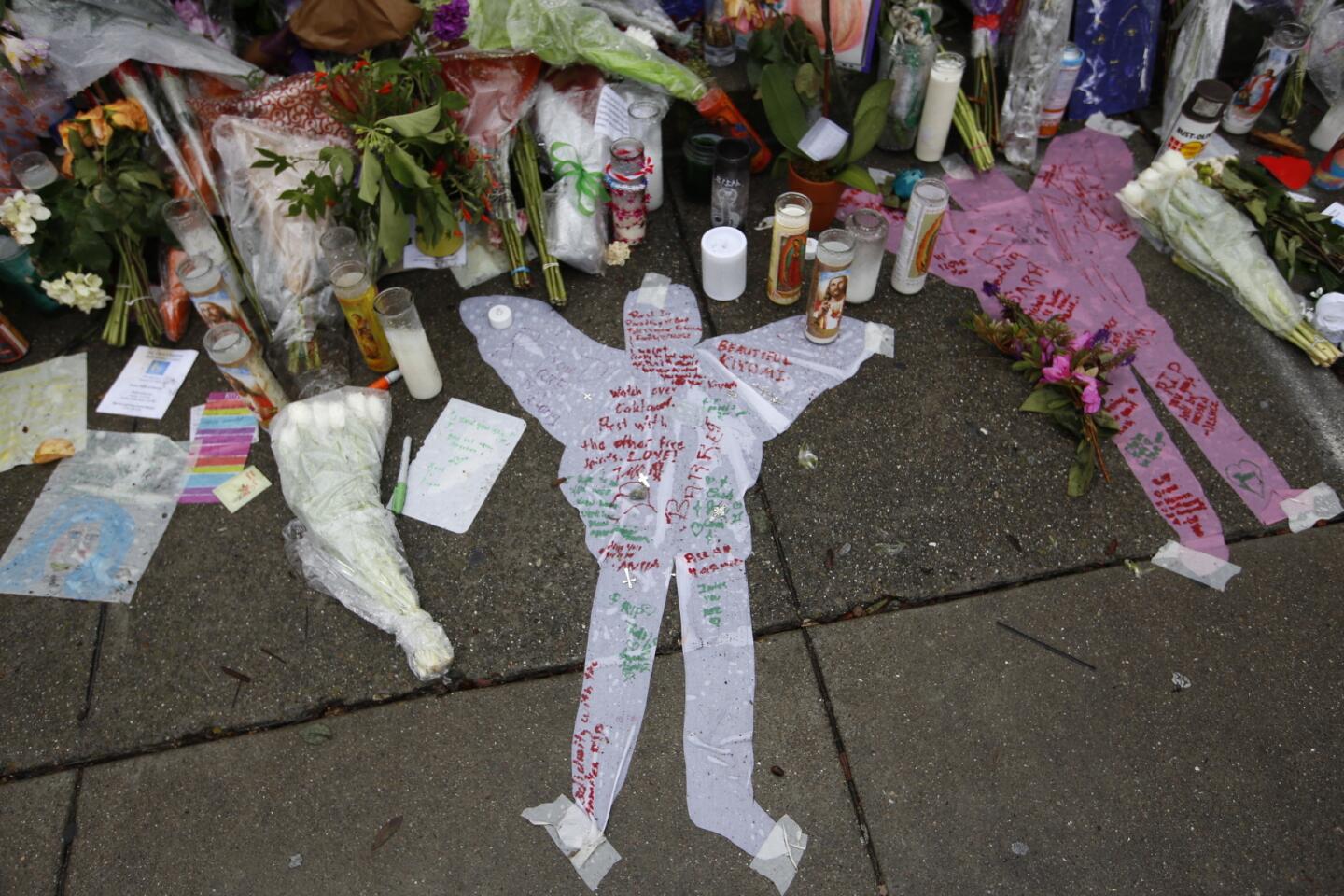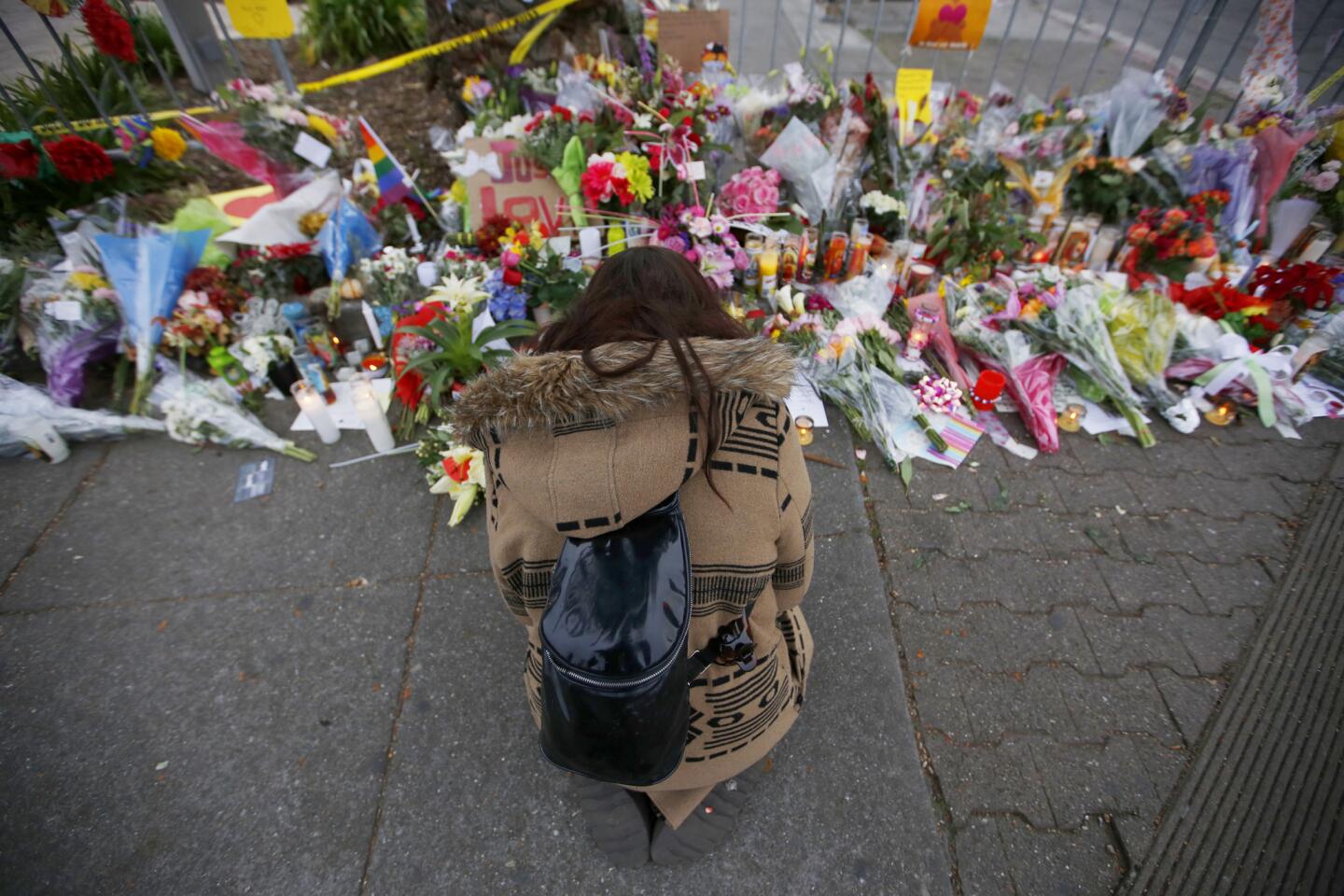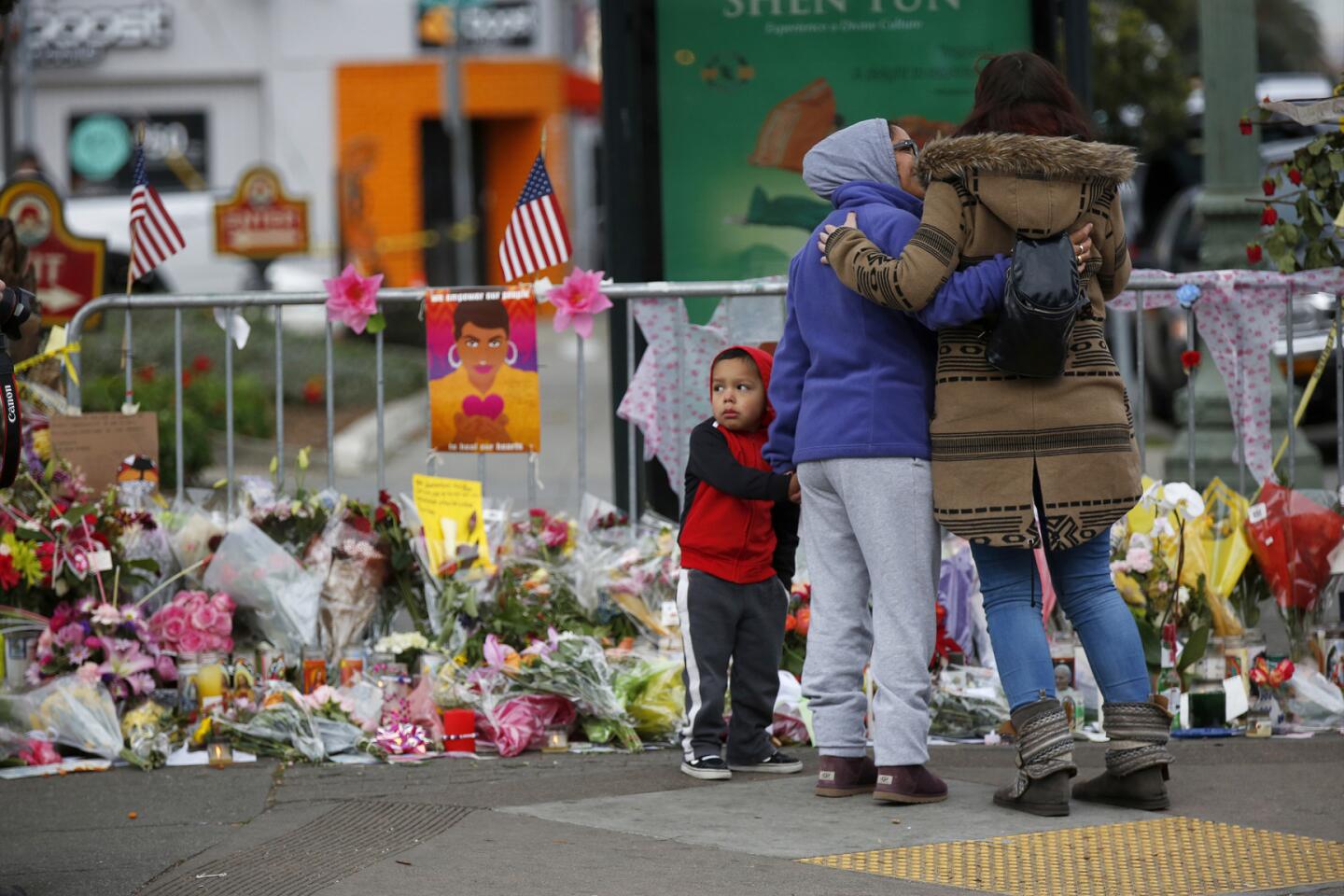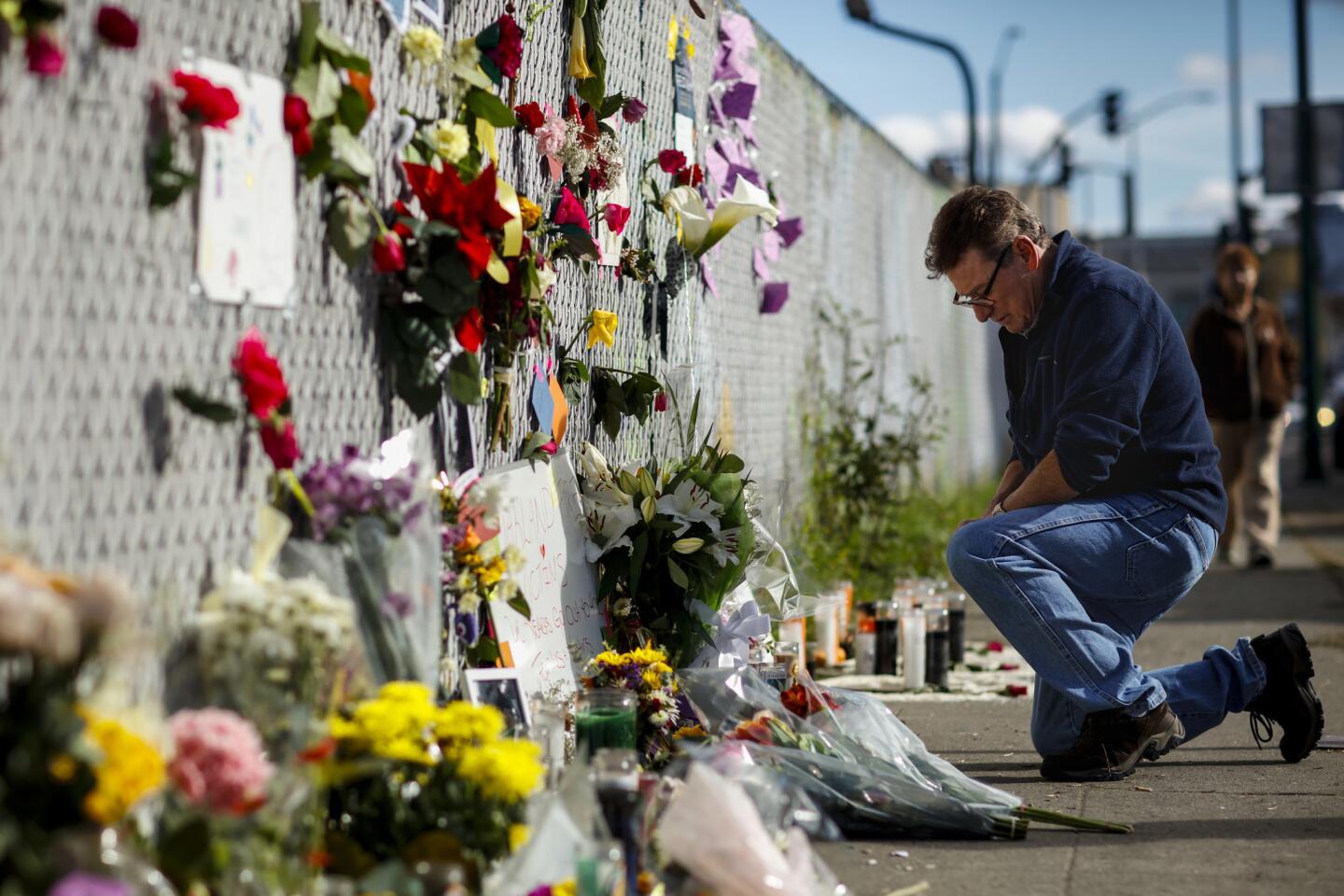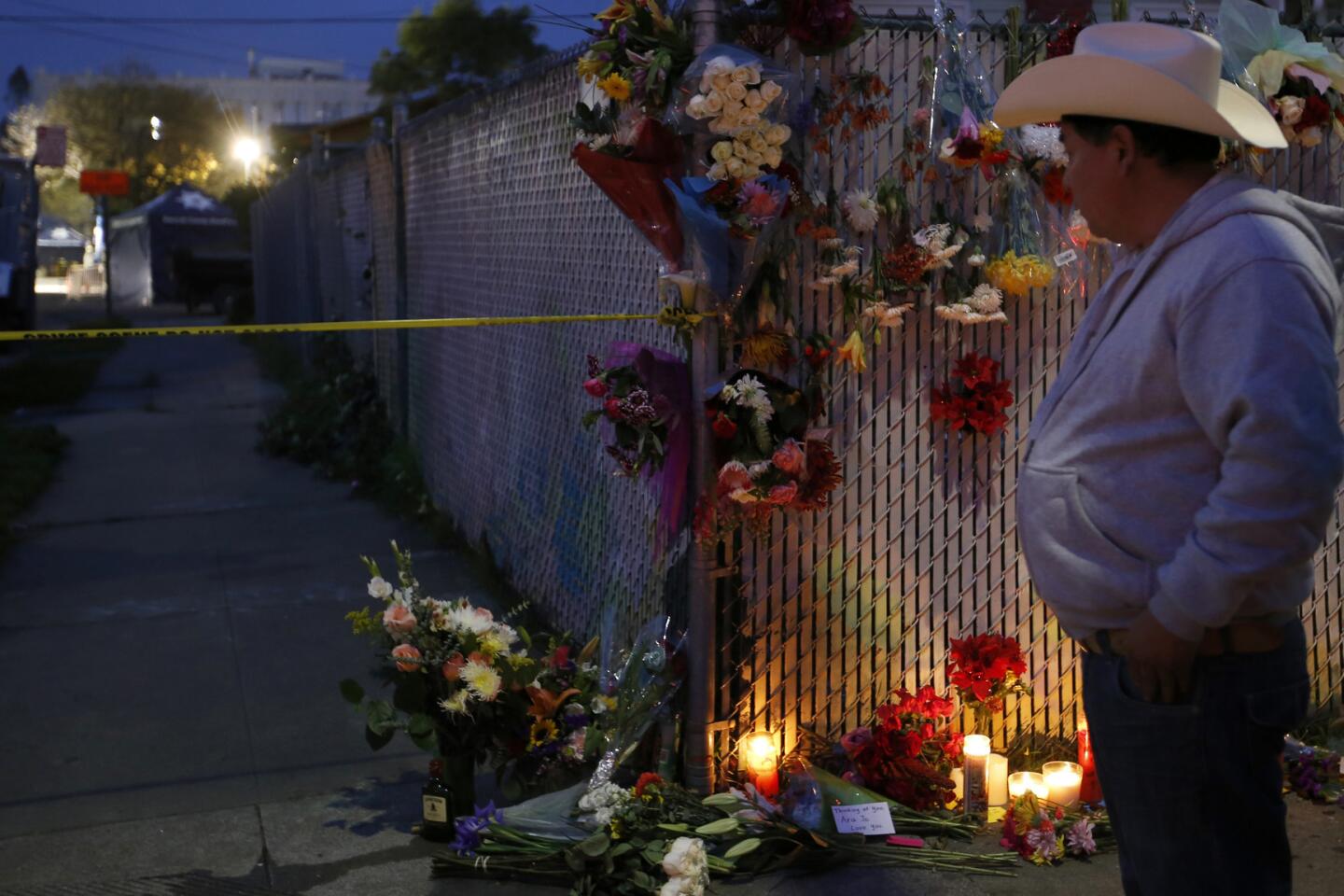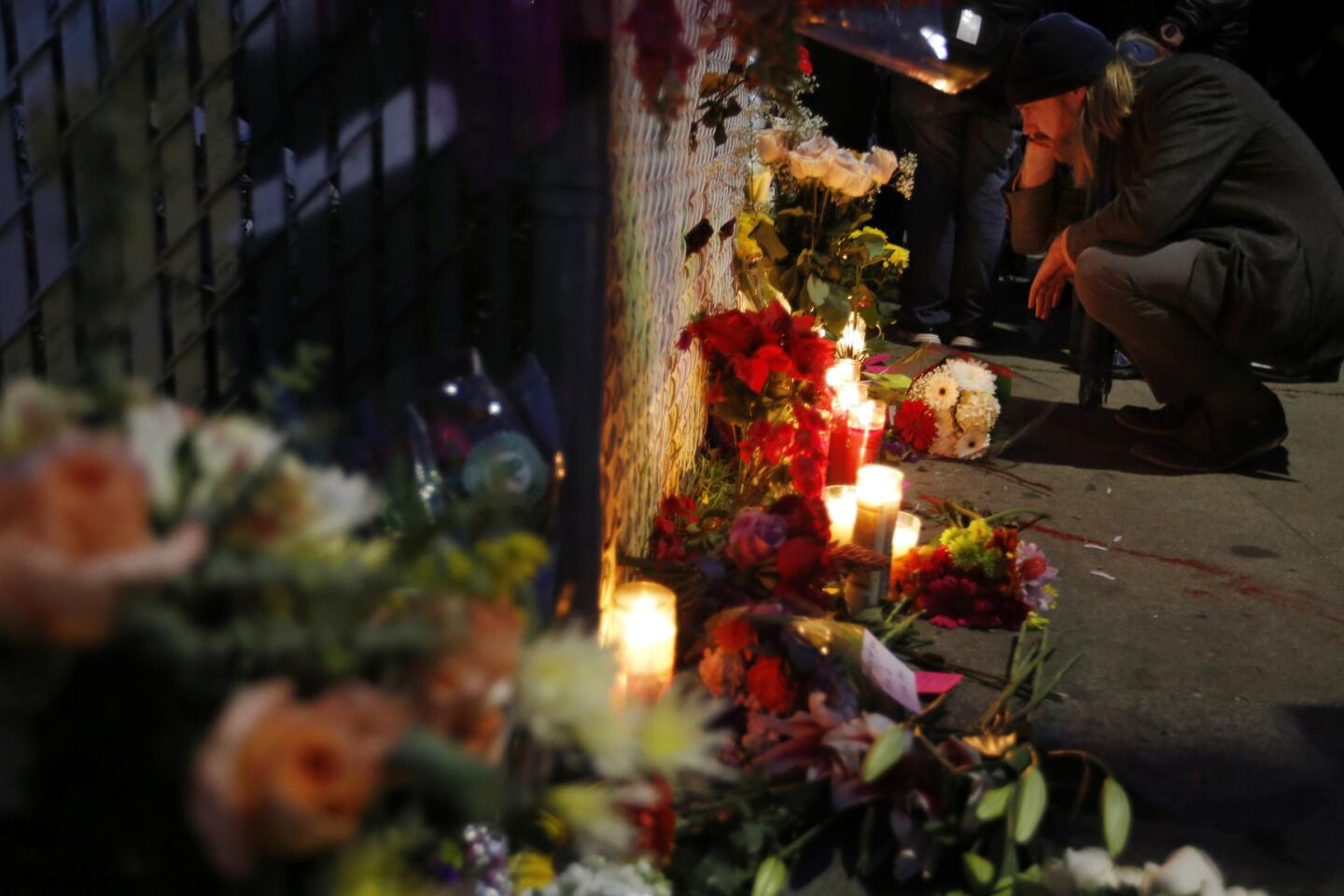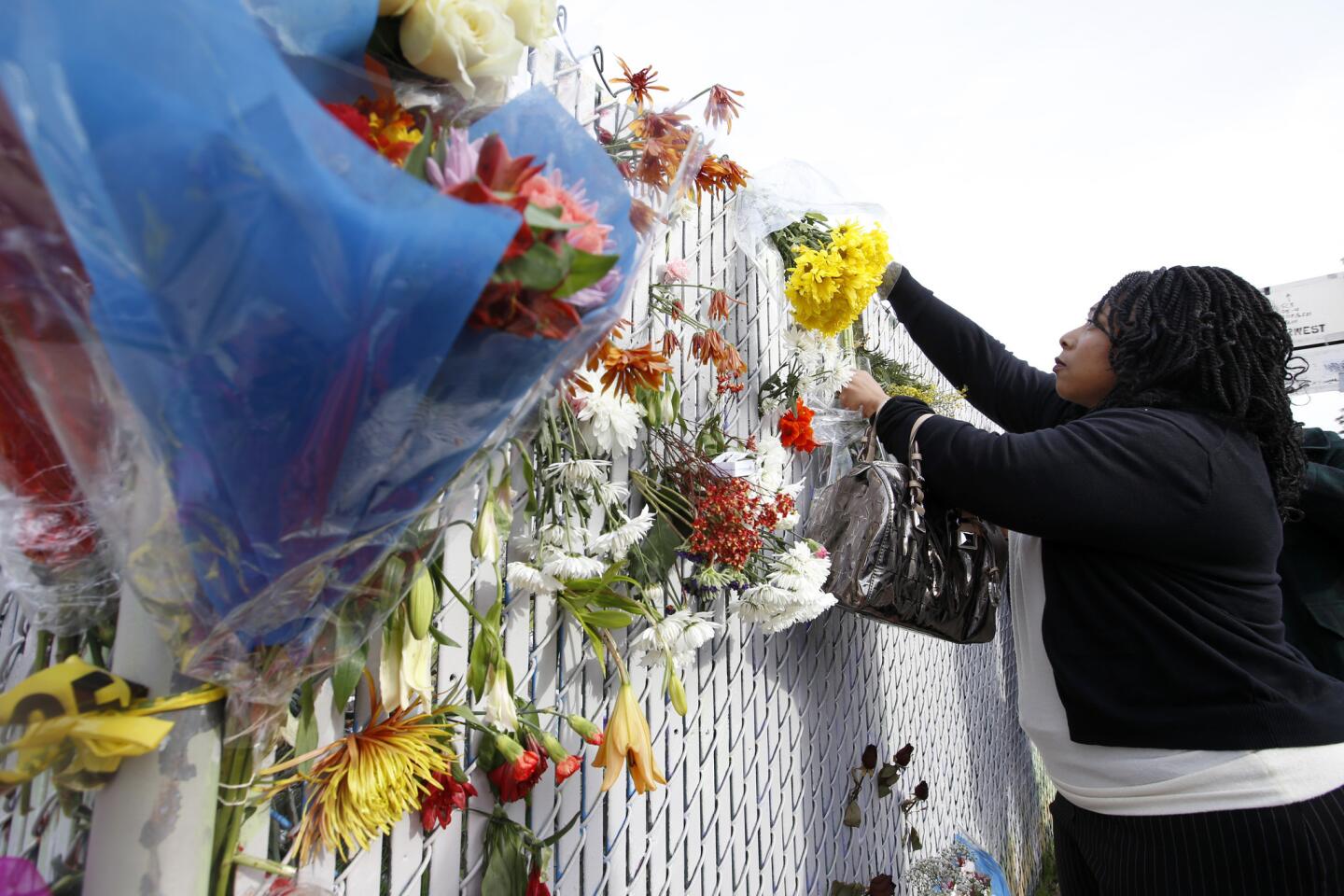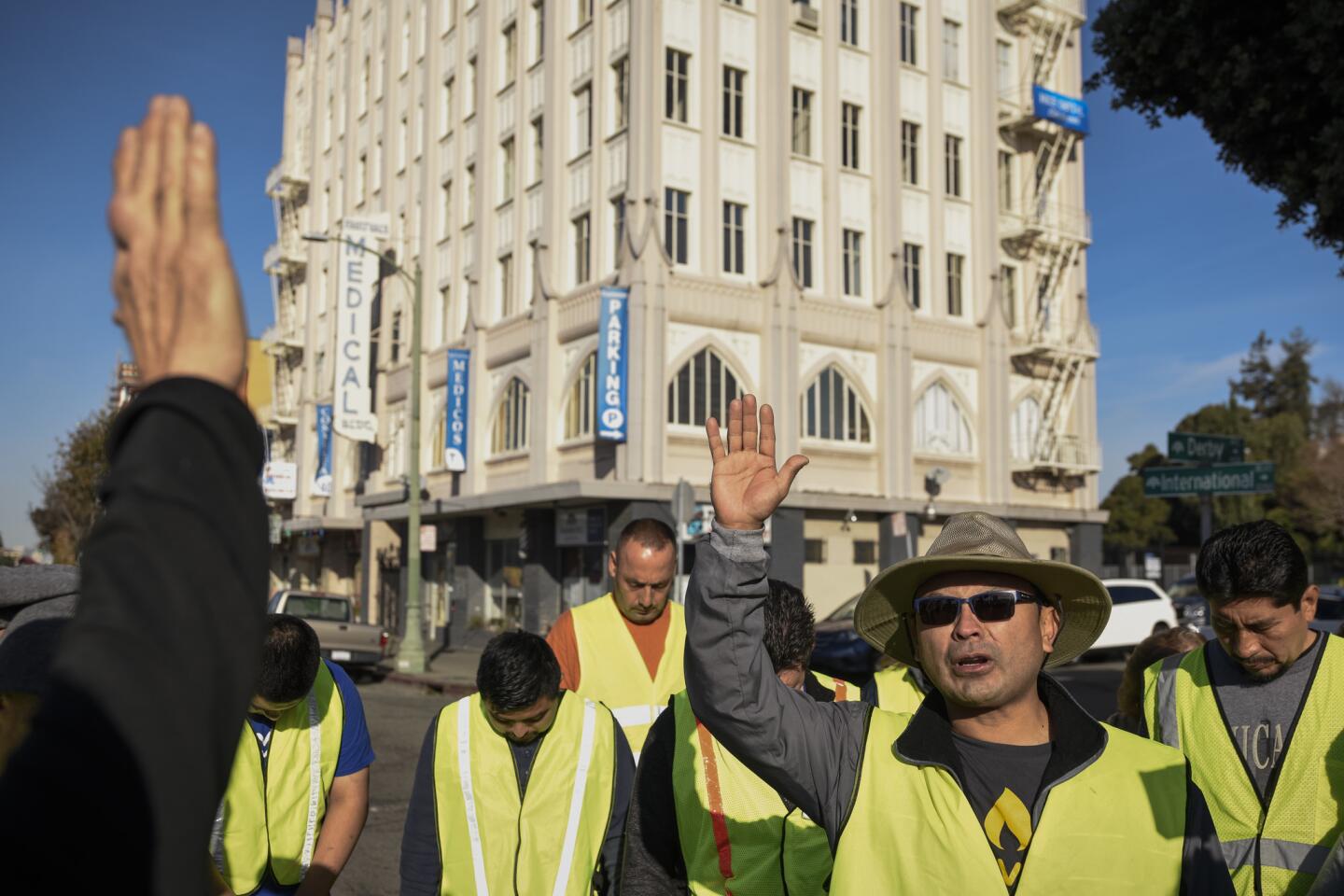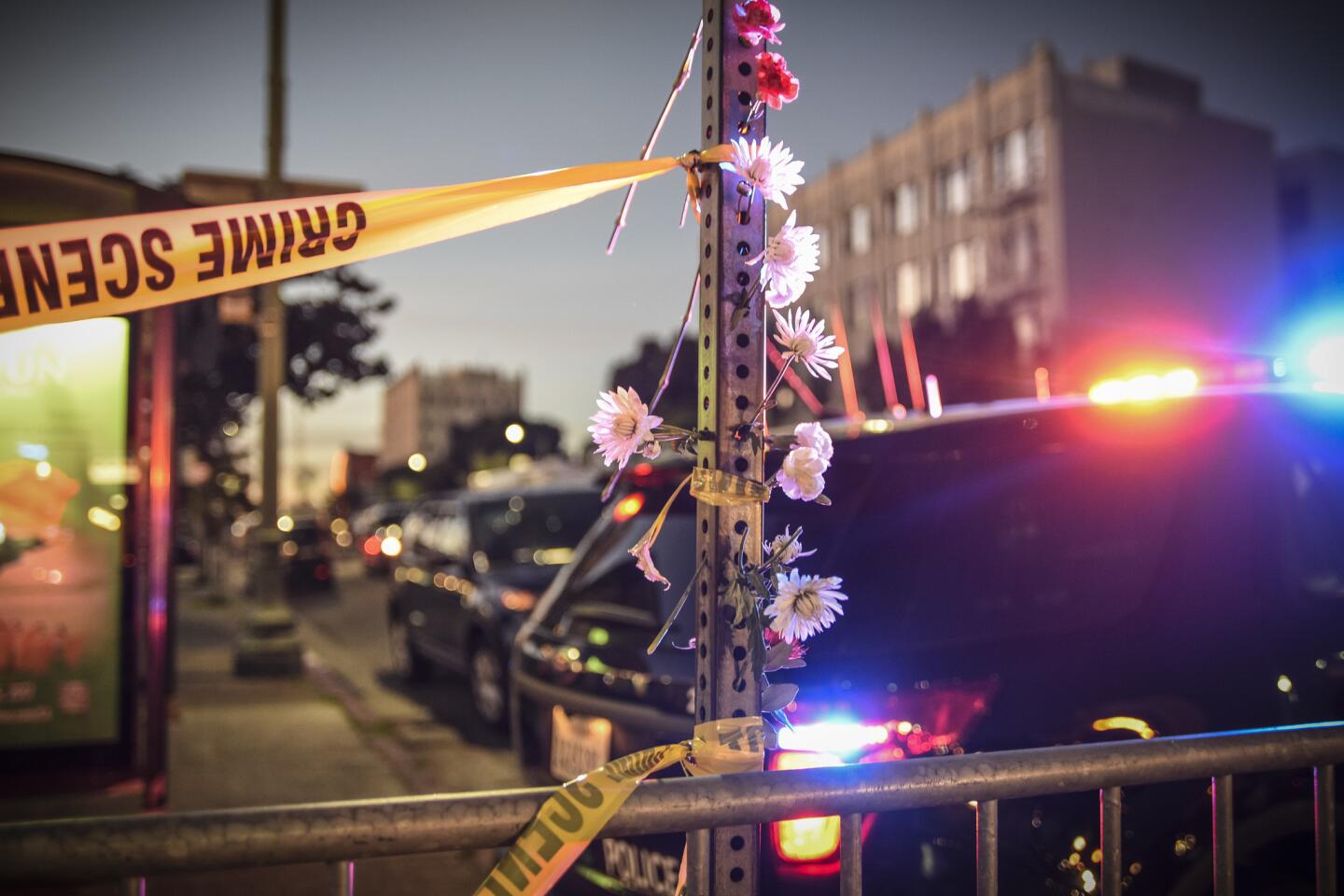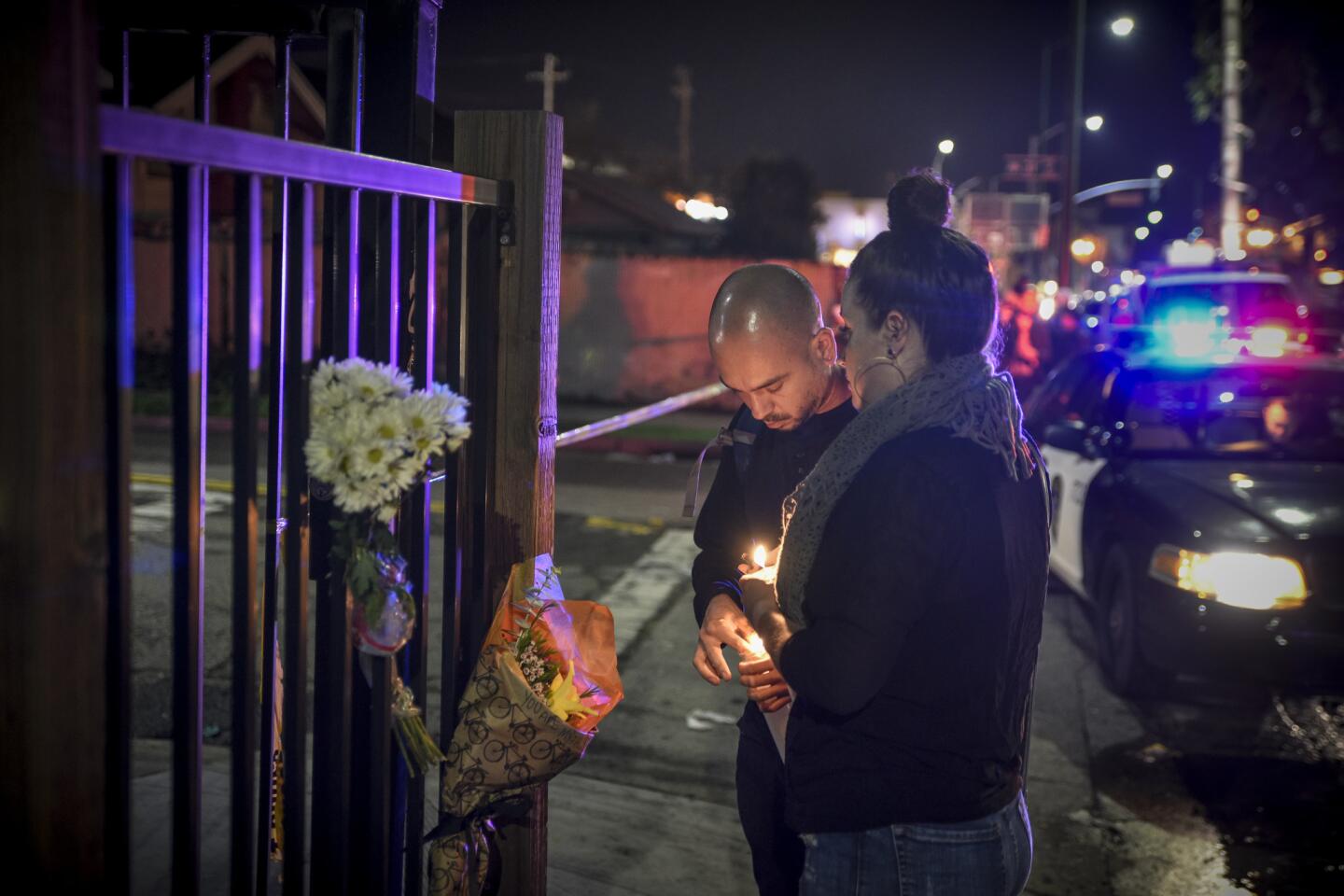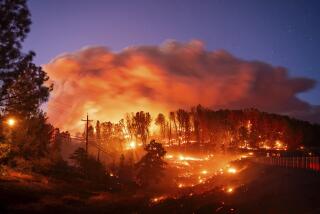Who could be held responsible for the Oakland fire
As the death toll in the Oakland warehouse fire climbs, investigators face a daunting task: figuring out how flames swiftly raced through the building and killed so many inside.
Prosecutors face perhaps a weightier burden: assembling a potential case and deciding whether to file criminal charges that can win a conviction.
There is precedent. After flames ripped through a Rhode Island nightclub in 2003, killing 100 people, two nightclub owners and a band’s tour manager were charged with involuntary manslaughter. The owners pleaded no contest and the manager pleaded guilty to the charges.
Jeffrey Pine, the former Rhode Island attorney general who defended one of the nightclub owners, said the massive inferno, like the one in Oakland, added pressure for legal action.
“Any good prosecution office is going to be looking at a number of different possibilities, one of which is, is anyone responsible criminally?” Pine said. “First you must determine what the exact cause and origin of the fire is.”
Alameda County Dist. Atty. Nancy O’Malley has dispatched a team of criminal investigators to the scene of the blaze, according to sheriff’s spokesman Sgt. Ray Kelly. The Oakland Police Department and a sheriff’s arson team are assisting, along with representatives from the U.S. Bureau of Alcohol, Tobacco, Firearms and Explosives.
Jean M. Daly, a former prosecutor who led the arson units for the San Francisco and Los Angeles County district attorney’s offices, said O’Malley made the right decision. The investigators can ensure the proper collection of evidence and help secure search warrants.
“You want to preserve it as a potential criminal investigation scene — get the evidence and it won’t be suppressed,” Daly said.
A potential case would turn on the cause of the fire.
If the fire is determined to be an arson, prosecutors could bring murder or aggravated arson charges — with one count for each person killed.
“Aggravated arson carries a minimum of 10 years in prison to life,” said Lou Shapiro, a Los Angeles defense attorney and former public defender.
Other causes — like a burning cigarette or electrical wiring — could still implicate a building owner or those affiliated with the concert held at the warehouse. Charges could include manslaughter or involuntary manslaughter.
To build a case, prosecutors would have to show that building operators were on notice about any potential code violations, building flaws or other legal issues, Daly said.
Shapiro said those involved could also face a reckless fire charge, a misdemeanor count that requires prosecutors to show a defendant was aware of a substantial and unjustifiable risk and ignored it.
But the investigation will be arduous and tedious, requiring crews to comb over every portion of the charred wreckage.
“There will be a lot of finger-pointing,” Shapiro said. “It will be very difficult for investigators to figure out who to blame for this.”
Experts agreed that local prosecutors, if they decide to move ahead with a case, should convene a grand jury to avoid the pressure of a very public case.
“It’s not an easy robbery,” Daly said. “Jurors have to understand fire and city code violations.… When you are focused on the gravity of the case and so many lives lost, you don’t want a knee-jerk reaction.”
ALSO
Death toll in Oakland fire climbs to 33 as families, friends fear the worst
Oakland warehouse had hosted parties, despite safety concerns of former residents
Names of seven victims released in Oakland fire; criminal investigators on scene
More to Read
Sign up for Essential California
The most important California stories and recommendations in your inbox every morning.
You may occasionally receive promotional content from the Los Angeles Times.
